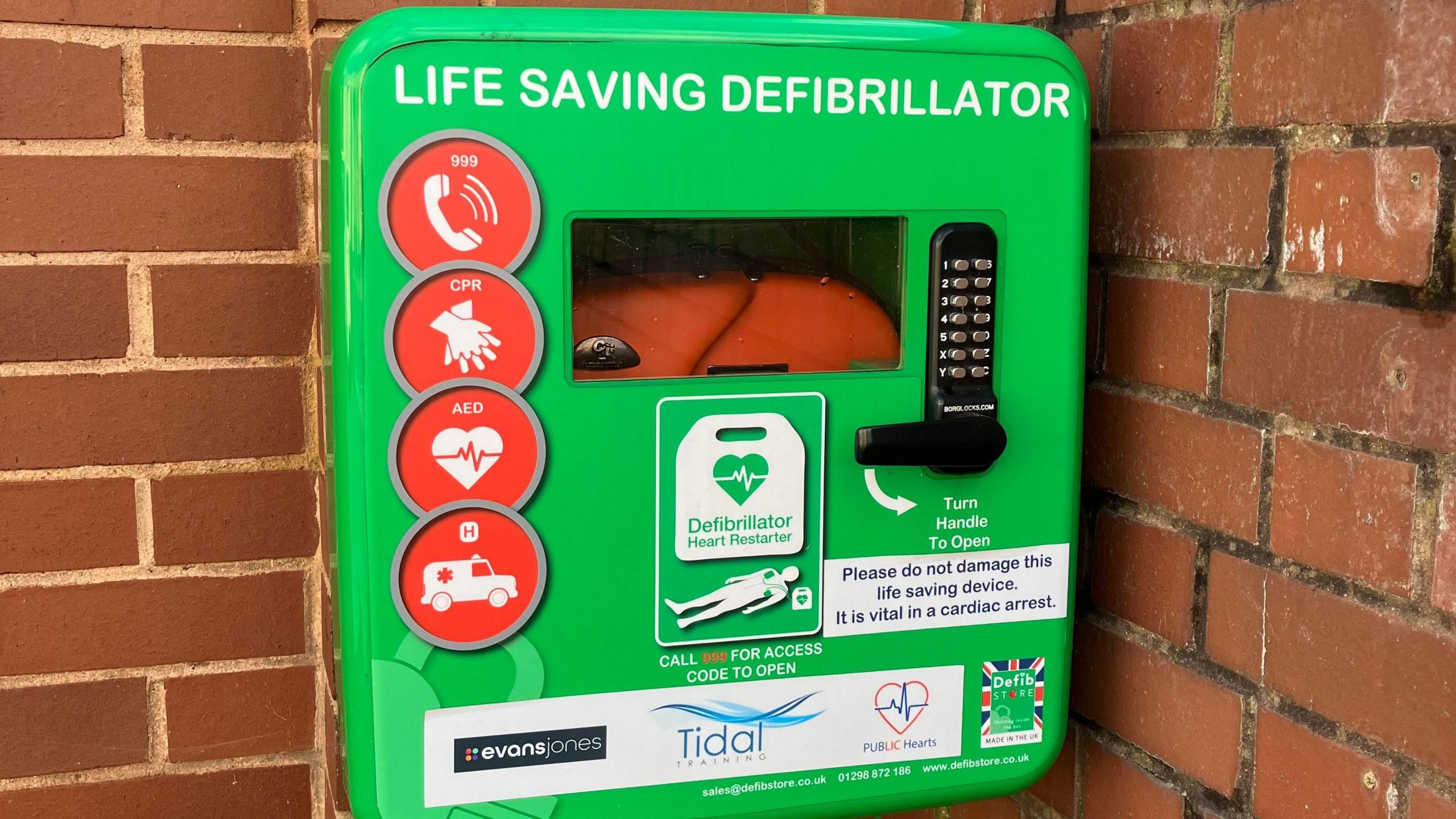'Defibrillator capital of UK' gets 100th machine
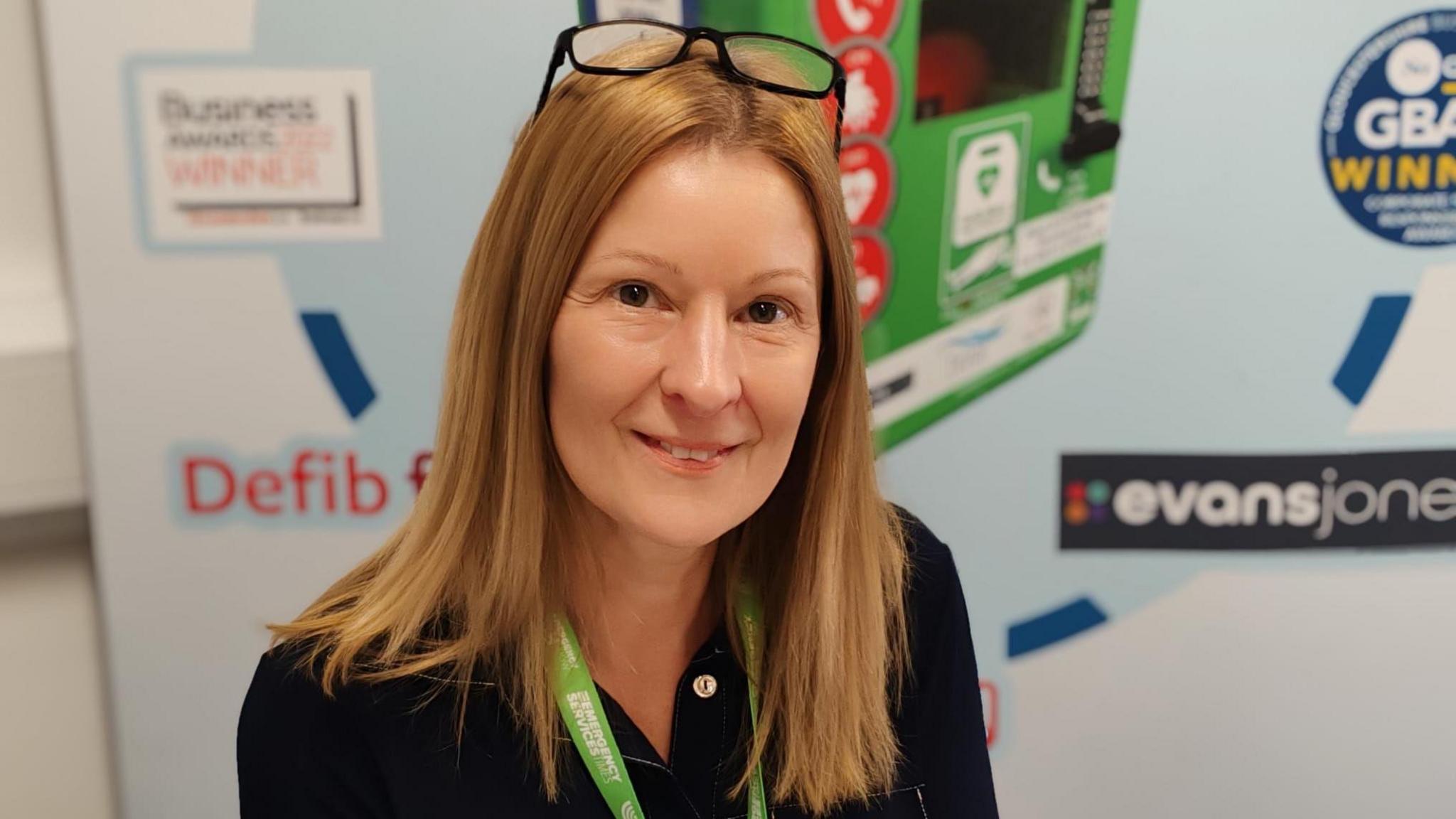
Clare Seed said defibrillators increase the chance of someone surviving cardiac arrest by 80%
- Published
The "defibrillator capital of the UK" has received its 100th machine after it was realised eight years ago that it had none at all.
Cheltenham was given the title by Clare Seed, co-founder of Public Hearts Cheltenham Defibrillator Campaign, who has been working to install defibrillators across the town since 2017.
The milestone machine was opened last week outside Hub8 MX, a cyber start-up co-working space on Chester Walk, by VIPs including footballer Eddie Jones.
Jones, who saved the life of his Chippenham Town teammate, Pablo Martinez, with a defibrillator said: "If we can get them in as many locations as possible, we're going to increase the chances of saving lives."
Jones, who formerly played for Gloucester City and Forest Green, is an ambassador for Public Hearts.
Martinez collapsed on the pitch in August 2022, and was initially unresponsive after going into cardiac arrest.
Jones, who is first aid trained, said he knew Martinez needed a defibrillator.
"As soon as the defib was put on his chest with the pads, we were instructed to shock him," he said.
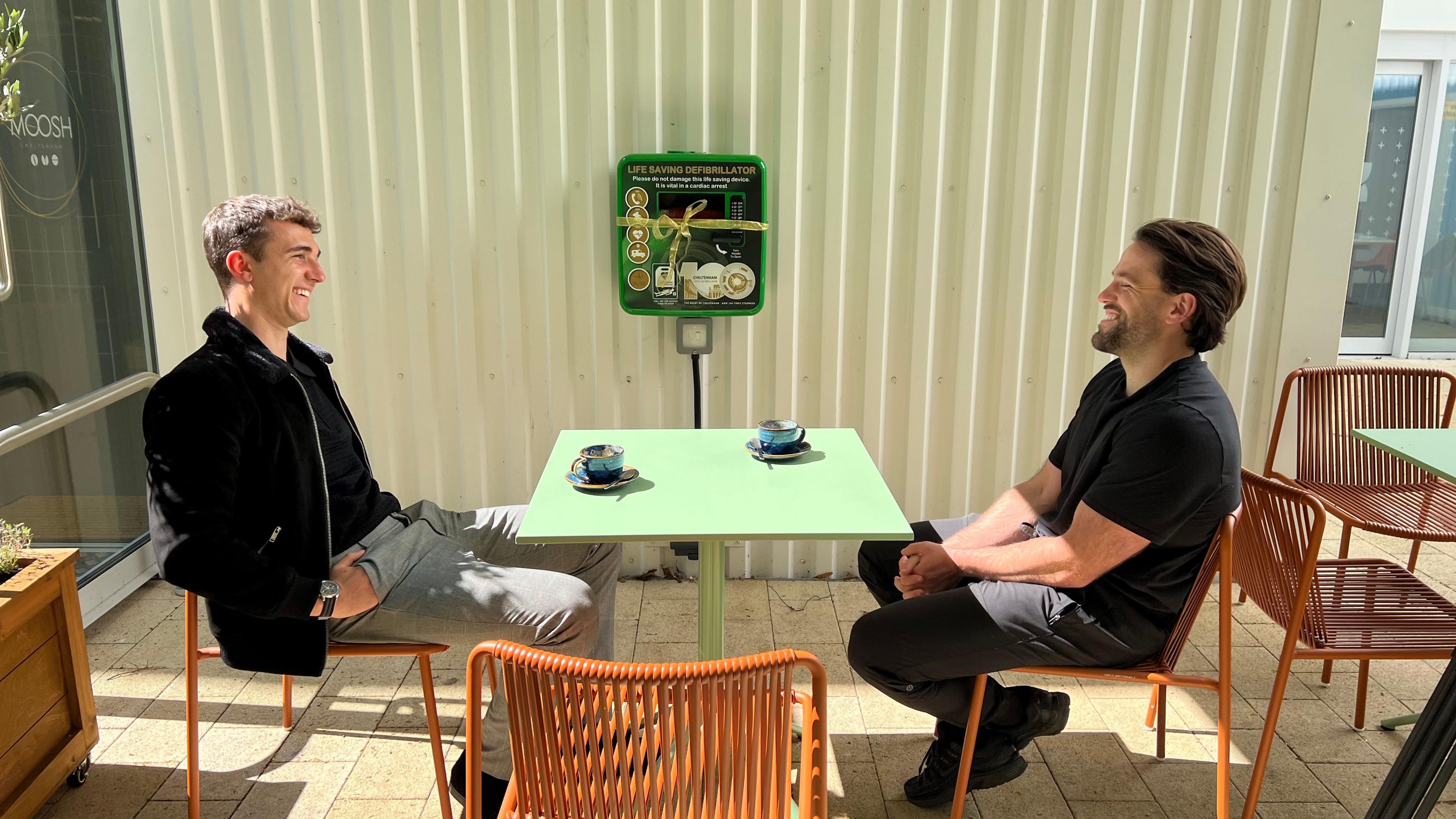
Pablo Martinez (left) had his life saved when Eddie Jones (right) used a defibrillator on him following his cardiac arrest
"He was gone for a few minutes but thank god for the defib, we were able to save him."
Martinez's condition was deemed not to be life-threatening and he made a full recovery, returning to football eight months later.
"Anyone can use a defib, it instructs you through how to do it, you've just got to get the pads out and turn it on," Jones said.
"We need defibs around us wherever we are, whether it's a village or a busy town.
"You never think it's going to be you but, from my experience, it can happen at any time."
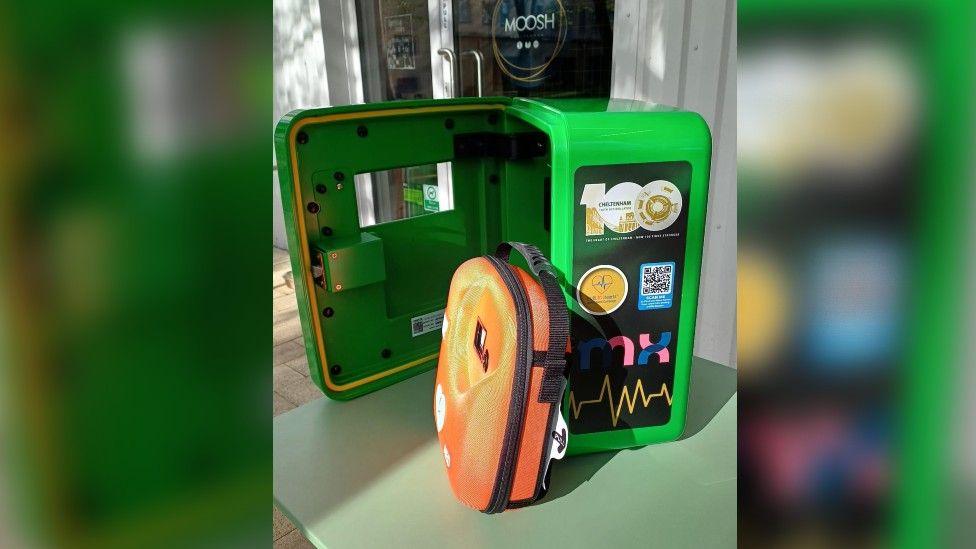
The defibrillator has been installed outside Hub8 MX
Donations and private sponsorship have allowed the Public Heart scheme, founded by Ms Seed, to install 100 defibrillators across Cheltenham.
"The original guidelines used to be if we can pop a defib every 200m (656ft), that's happy days," she said.
"But in Cheltenham, we wanted to be even better than that, we've got them about 131m (430ft) from each other, which is absolutely fantastic.
"If we can get a defib on a patient in the first two minutes, we can increase the chances of survival by up to 80%."
Get in touch
Tell us which stories we should cover in Gloucestershire
Follow BBC Gloucestershire on Facebook, external, X, external and Instagram, external. Send your story ideas to us on email or via WhatsApp on 0800 313 4630.
Related topics
- Published2 March
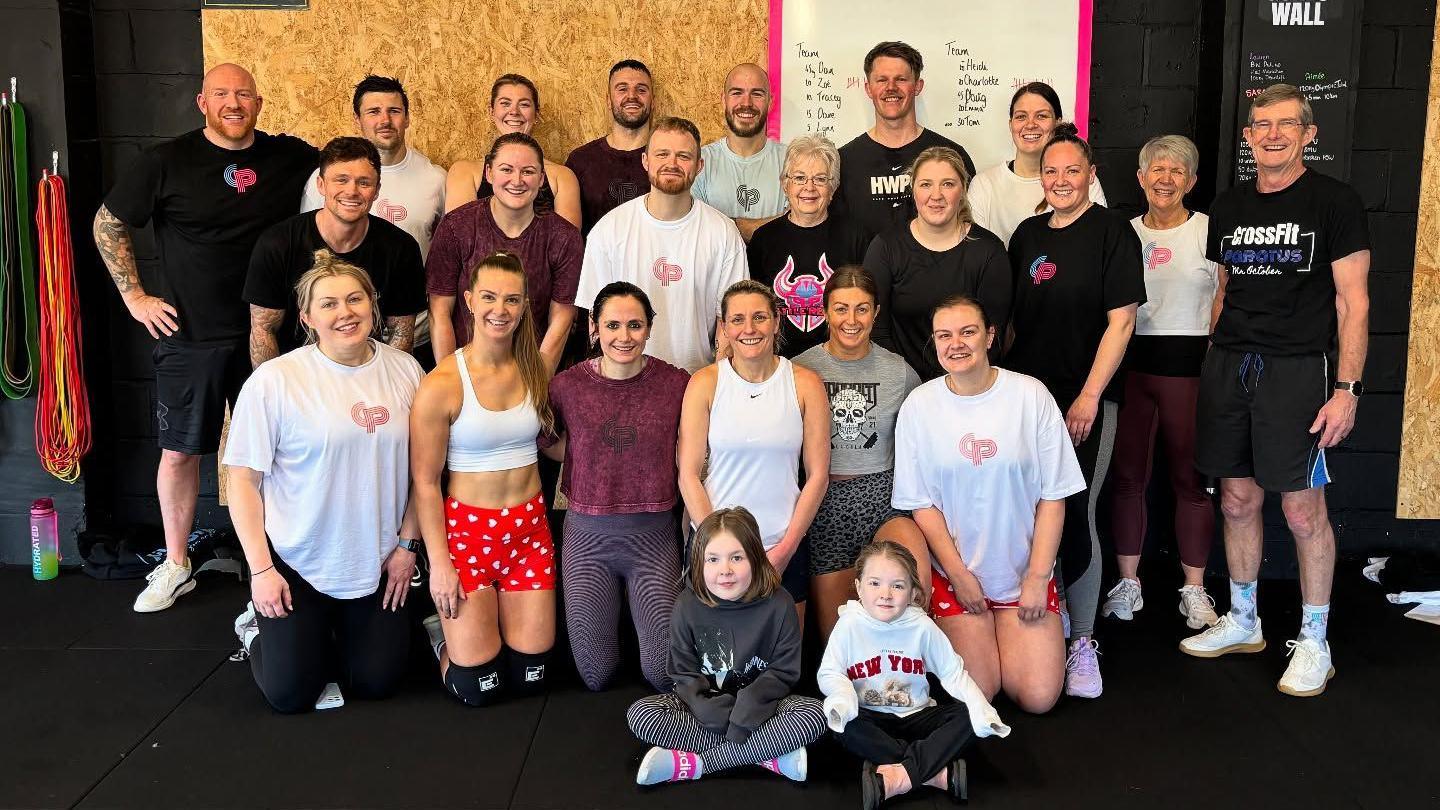
- Published11 July 2024
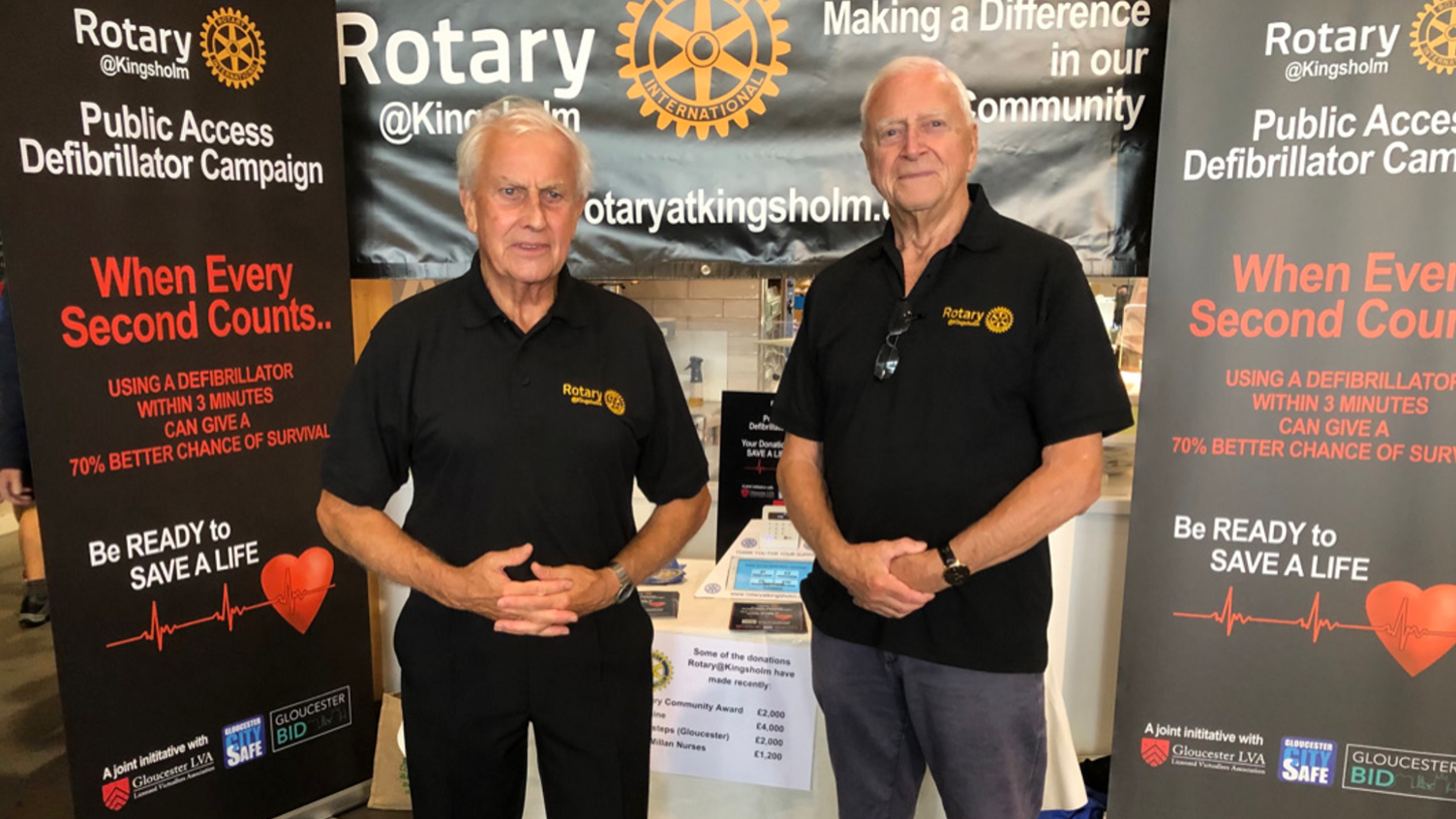
- Published27 February 2024
